Stepping Up Investment in Latin American Women is Imperative
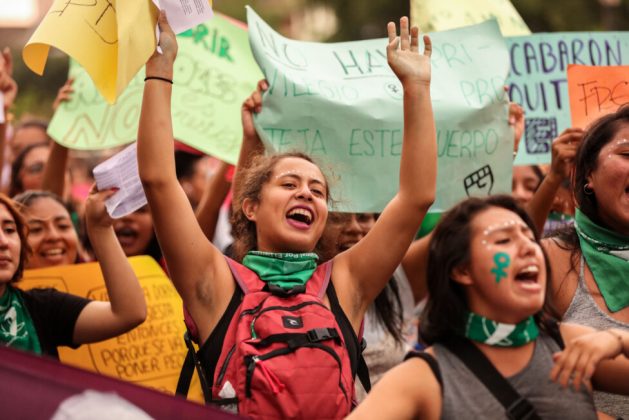
LIMA, Mar 07 (IPS) - Time is running out to achieve gender equality in Latin America and the Caribbean by 2030. The autonomy of women and girls in the region is threatened by hunger, poverty and violence, and countries must urgently step on the gas.
For Mar. 8, International Women's Day, United Nations agencies have focused on progress made towards the gender targets of the Sustainable Development Goals (SDGs) of the 2030 Agenda approved in 2015.
"In our region, only 25 percent of the targets for which information is available in the SDG monitoring indicators allow us to foresee their fulfillment by 2030," said Ana Güezmes, chief of the Division for Gender Affairs of the Economic Commission for Latin America and the Caribbean (ECLAC).
From ECLAC headquarters in Santiago, Chile she told IPS that 48 percent of the goals have seen progress, albeit insufficient, in the right direction, while there has been backsliding on 27 percent.
The slogan set by the United Nations for this Mar. 8 is "Invest in Women: Accelerate Progress", calling for greater spending by governments to achieve SDG 5, which has a global deficit of 360 billion dollars per year.
In the region, there are both progress and concerns regarding SDG 5, which refers to achieving gender equality and empowering women and girls.
Güezmes said the region is moving ahead in terms of strengthening policies and laws, but that the challenge is to accelerate the implementation and enforcement of government measures in order to increase the rate of progress towards substantive equality.
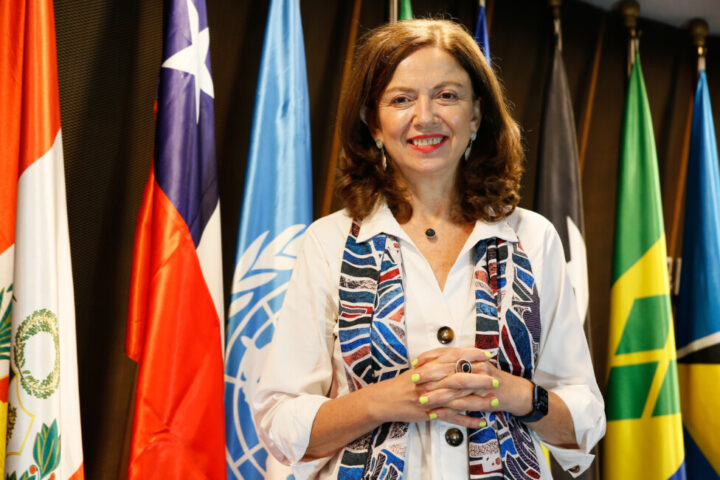
She said improvement has been slow towards other SDG 5 targets, such as the elimination of violence against women and girls, the eradication of child marriage, and the recognition and valuation of unpaid domestic and care work. And she added that the region continues to lag behind in technology for the empowerment of women.
Güezmes, a physician by profession, and an advocate for women's human rights, a care society and gender equality, has held senior positions in the region at UN Women, the UN Population Fund (UNFPA), the World Health Organization (WHO) and the Pan-American Health Organization (PAHO) over the past 30 years.
Greater inequality among poor, indigenous and rural populations
Latin America and the Caribbean, which in 2022 was home to 334.627 million girls and women, 50.8 percent of the regional population according to the World Bank, are facing several crises.
The region was one of the hardest hit by the Covid-19 pandemic and for the last 10 years has averaged a meager 0.8 percent annual economic growth rate, affecting its population, which is suffering from poverty, food insecurity and lack of employment, all of which hit girls and women harder.
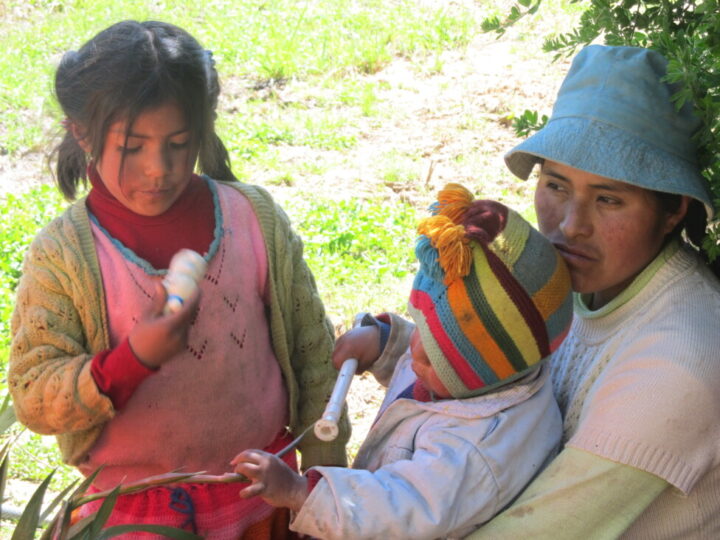
On Feb. 28, ECLAC, in partnership with UN Women, presented a study on the state of progress towards gender equality in the region, which highlighted the gaps that hinder the rights of women, girls and adolescents.
Three out of 10 girls and women live in poverty and one out of 10 in extreme poverty, with higher rates among indigenous, black and rural women. Likewise, four out of 10 women suffer some level of food insecurity and hunger.
Of those over 15 years of age, 25 percent have no income of their own, a proportion that rises to 40 percent among those in the lowest socioeconomic quintile.
Nayda Quispe, from the Peruvian department of Cuzco, is one of the 3.4 million rural women in the Andean country. She has dedicated her life to agriculture and, at 62 years of age, is well aware of the harsh reality of rural life for women.
"We constantly experience inequality here. Women work all day, but are not paid or recognized for their efforts, continue to be pushed to the back burner, and because of economic dependence stay in violent relationships," she told IPS during a meeting ahead of Mar. 8 in Cuzco, the capital of the southern Andean department.
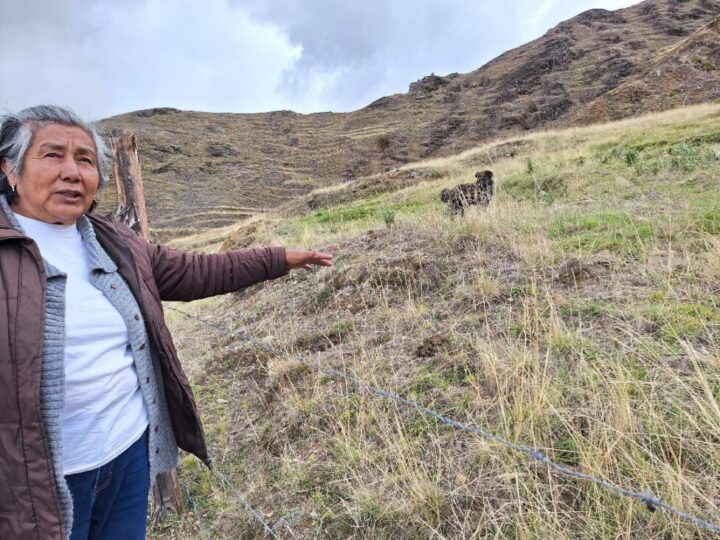
Quispe is one of the few women in her rural environment who managed to continue her studies, graduating as a biologist and working for a few years in her profession without losing her link with agroecology, to which she is now fully dedicated.
She criticized governments for building cement works instead of investing in education and training for women that would allow them to have decent jobs and earn their own money. "As long as this does not change, we will continue to be the forgotten ones as always," she complained.
The ECLAC study shows that in Guatemala and Honduras, more than 50 percent and 43 percent of women, respectively, have no income of their own - among the highest levels in the region.
Güezmes stressed the impact this has on women's economic independence, a necessary condition for physical autonomy and a life free of violence.
"Gender-based violence against women and girls occurs systematically and persistently in the region, in both the domestic and public spheres," she said.
She highlighted the problem of early and forced child marriages and unions, which affect one out of every five girls in the region. Suriname, Nicaragua, Honduras, Belize, the Dominican Republic and Guyana lead with percentages above 30 percent. Only four countries have percentages below 20 percent: Costa Rica, Argentina, Peru and Jamaica.
In addition, the ECLAC study reports that in this region, considered to have the highest levels of gender-based violence, an average of 338 women per month and 11 per day are victims of gender-based homicide, or femicide. In 2022 at least 4050 women fell victim to this crime, 70 percent of whom were of reproductive age between 15 and 44 years.
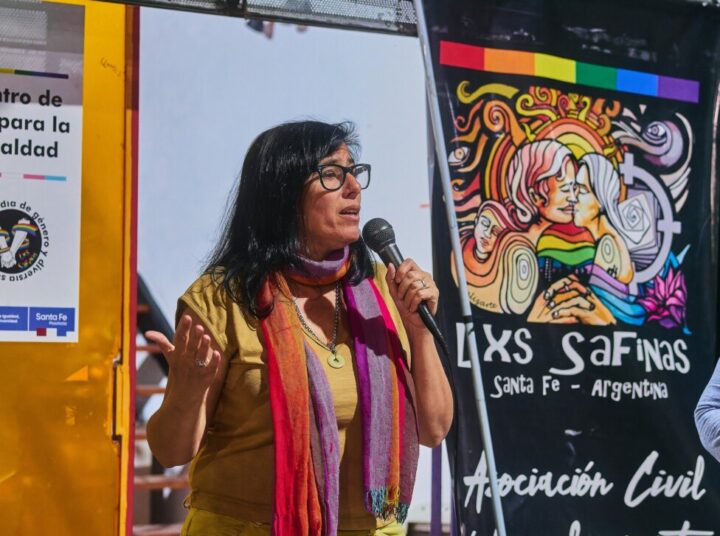
Achievements at risk
The weakening of democracies in the region has had a direct impact on women's rights. Achievements in gender institutionality in Argentina, for example, are in marked decline, including the right to abortion, under the government of far-right President Javier Milei, thus affecting progress towards the SDGs.
"Under Milei, women and minorities are heavily harassed. The era of rights is over; the right wing has arrived to cut back on the advances we had made in sexual and reproductive rights, gender equality and LGTBIQ+ rights," María Eugenia Sarrias, president of Lxs Safinas, a lesbian feminist organization based in the Argentine city of Rosario, told IPS.
She added from that city that the setbacks in social policies have caused shortages in soup kitchens and school lunches. "They're trying to pay the debt with the hunger of the people. The freedom they talk about is only for those who hold power and have money. We, women and minorities, are facing a very big risk," she warned.
In El Salvador, President Nayib Bukele announced this month, as his first measure after his landslide reelection, the elimination of all vestiges of the gender perspective in public education, shortly after participating in a gathering of far-right leaders with former U.S. president and candidate Donald Trump.
There is also great concern in Ecuador, where emergency measures are in place to deal with organized crime.
"There are many more women who are impoverished, migrants and victims of violence not only from their partners but also from groups linked to crime," Clara Merino, coordinator of the Luna Creciente National Movement of Women from Popular Sectors, told IPS.
She argued from Quito that if things continue the way they are going, it will not be possible to achieve gender equality by 2030. "The budget for education, health, human rights and women has been cut. It is impossible for government action to reach the territories where indigenous and black women live, where hunger, child malnutrition and migration of young people are on the rise," she stressed.
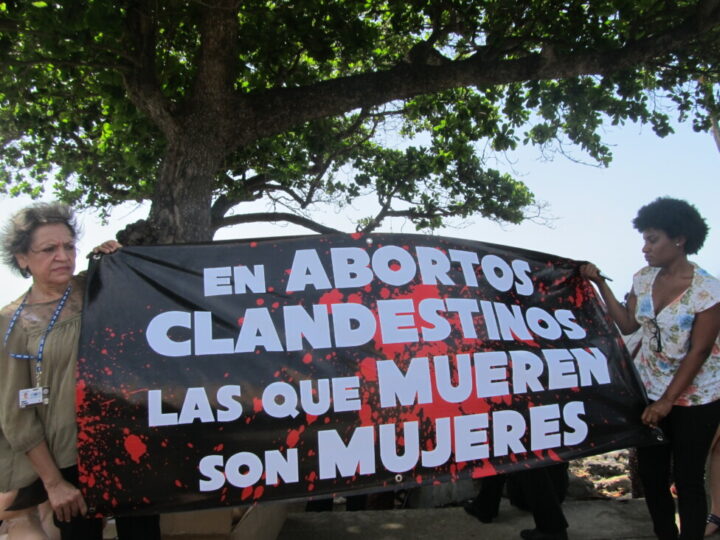
Investing in care
Güezmes said that "in the context of low and volatile economic growth in the region, it is necessary to invest in women, because there is a historical debt to their rights and because this kind of spending has the potential to accelerate sustainable development."
She gave as an example investment in the care system to break the vicious circle of exclusion and transform it into a virtuous one with multiple positive social and economic effects such as generating employment, higher income and well-being.
"We are the only region in the last 45 years that has promoted an ambitious and comprehensive Regional Gender Agenda that, through the Buenos Aires Commitment, says care should be seen as a right, a need and a job. Addressing it in these three dimensions is essential to achieve the profound change that our societies need," she underlined.
© Inter Press Service (2024) — All Rights ReservedOriginal source: Inter Press Service
 Global Issues
Global Issues